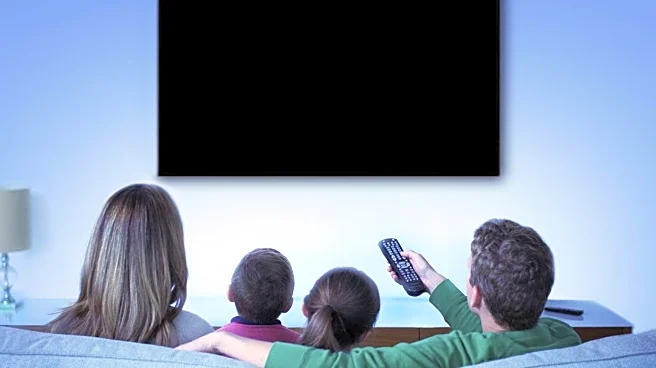What's Happening?
Several families have taken steps to reduce their children's screen time, motivated by concerns over the impact of technology on their development and well-being. Christina Dinur's family decided to eliminate screen access after noticing their toddler's
fixation on tablet games. Despite initial resistance, the change led to improved family dynamics and increased creativity among the children. Experts like Jason Nagata from the University of California emphasize the importance of adaptable media use plans, noting the risks of excessive screen time, including depression and cognitive decline. Parents are encouraged to provide alternative activities to ease the transition away from screens.
Why It's Important?
Reducing screen time is crucial for children's health and development, as excessive use is linked to negative outcomes such as obesity, poor sleep, and mental health issues. The experiences of these families highlight the potential benefits of limiting technology, including enhanced social interactions and creativity. This movement reflects broader concerns about the role of technology in children's lives and the need for balanced media consumption. By sharing their strategies, these parents offer valuable insights for others facing similar challenges, contributing to a growing discourse on healthy technology use.
What's Next?
As more families consider reducing screen time, there may be increased demand for resources and support to facilitate this transition. Schools and community organizations could play a role in promoting alternative activities and educating parents about the benefits of limited screen exposure. The conversation around screen time may influence public policy, encouraging guidelines that prioritize children's health and development. Continued research on the impact of technology on youth will be essential in shaping future recommendations and interventions.
Beyond the Headlines
The decision to reduce screen time touches on broader cultural and ethical questions about the role of technology in modern life. It challenges the assumption that digital devices are essential for education and entertainment, prompting a reevaluation of how technology shapes childhood experiences. This movement may inspire a shift towards more intentional and mindful technology use, fostering environments that prioritize human connection and creativity over digital engagement.
















